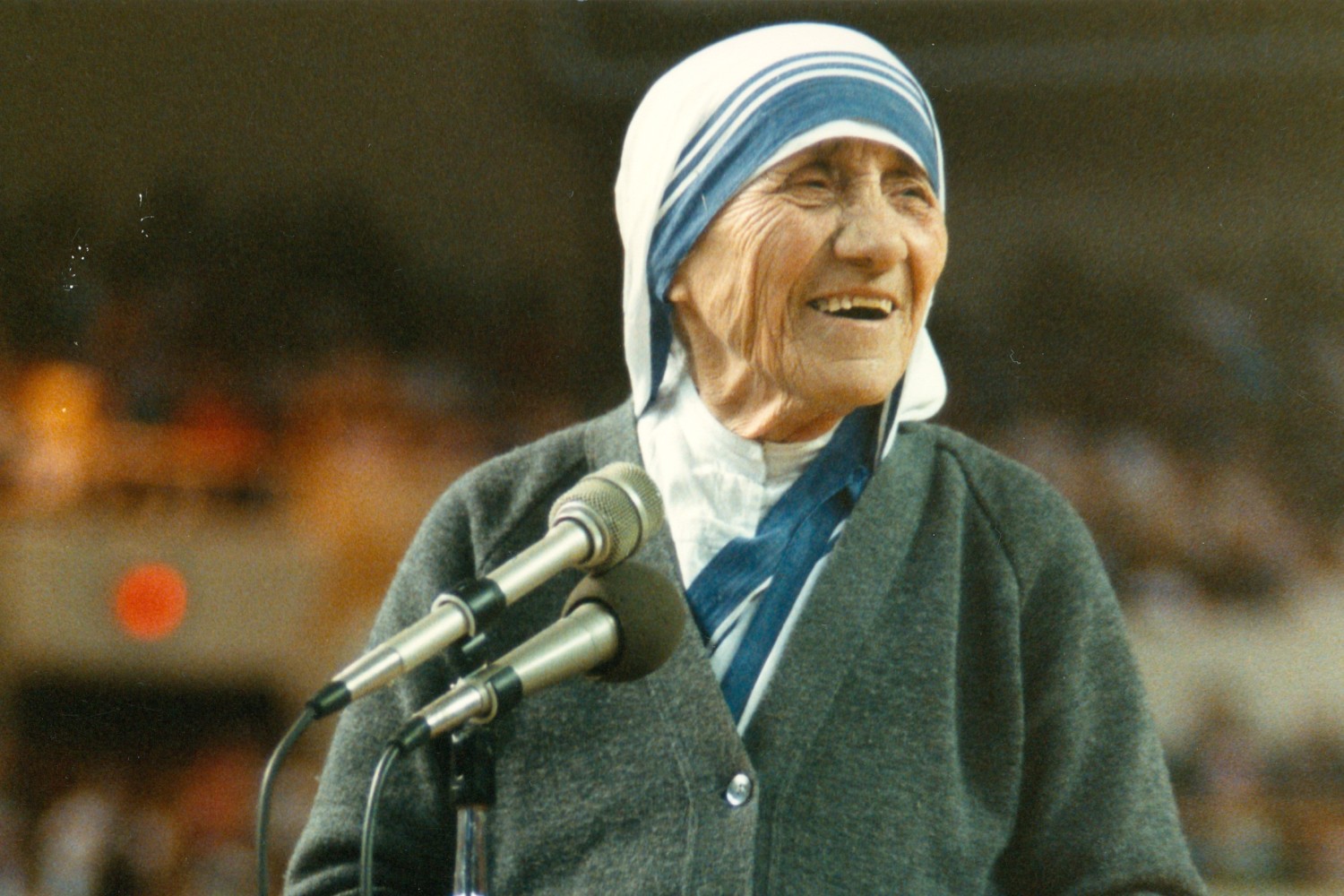The Love of Mother Teresa of Calcutta
Following is the prepared text from Bishop Olmsted’s homily for the Mass in Honor of St. Mother Teresa of Calcutta.
September 4, 2021
“Beloved, let us love one another, because love is of God…Whoever is without love does not know God, for God is love.”
“Queridos hermanos, debemos amarnos unos a otros, porque el amor viene de Dios… El que no ama no ha conocido a Dios, porque Dios es amor.”
(1 John 4:7f)
What mattered most to Mother Teresa of Calcutta was the love of Jesus. He was the reason she got up early in the morning, adored Him in the Eucharist, and served Him in the poorest of the poor. She wrote: “To me, Jesus is the Life I want to live, the Light I want to reflect, the Way to the Father, the Love I want to express, the Joy I want to share, the Peace I want to sow around me. Jesus is everything to me.”
Love is what made the Eucharist the center of Mother Teresa’s life. Years ago, I had the privilege, from time to time, to celebrate Mass for the Missionaries of Charity at their convent in Rome. Sometimes, when I went for Mass early in the morning, in a chapel with no pews, Mother would be there, sitting on the floor among the other Sisters, adoring Jesus in the Blessed Sacrament. When asked about her prayer, she replied, “Mostly I listen to God.” And when asked what God said to her, she replied, “Mostly, He listens to me.”
St. John, in his first letter, wrote, “In this is love: not that we have loved God, but that He loved us and sent His Son as expiation for our sins.” “El amor consiste en esto, no en que nosotros hayamos amado a Dios, sino en que El nos amo’ a nosotros y envió a su Hijo, para que, ofreciéndose en sacrificio, nuestros pecados quedaran perdonados.”
Getting up early each morning to adore Jesus in the Eucharist was a practice throughout Mother Teresa’s life because in our Eucharistic King, she encountered love. His love flowed into her soul and filled it to the brim and then overflowed for whomever she met. Jesus called her to love Him in the poorest of the poor. When asked, “And who are the poorest of the poor,” she said,
“There are many kinds of poverty. Even in countries where the economic situation seems to be a good one, there are expressions of poverty hidden in a deep place, such as the tremendous loneliness of people who have been abandoned…As far as I am concerned, the greatest suffering is to feel alone, unwanted, unloved.”
We witnessed this poverty, during the COVID pandemic, in the nursing homes and hospital wards. And we find it in broken families, especially in children who lose, through divorce, the presence in their home of a mother and father whose love for each other is designed by God to overflow for them.
Wherever the love of Jesus is present, there is joy and peace. If we desire to love others as Jesus loves us, the joy and peace of Jesus must overflow from our hearts. Once, when I had the privilege of assisting Mother Teresa with a project, she took my hands in hers, looked me in the eye, and said, “Father, pray that I and my sisters never lose our joy.” She was convinced that it was impossible to convey the love of Jesus without joy in your heart.
In a message to families, Mother Teresa said, “…make it a special point to become God’s sign of happiness. Joy shows from the eyes; it appears when one speaks and walks. It cannot be kept closed inside us…Joy is very infectious. We shall never know all the good that a smile can do.”
How great is our need for the witness of Mother Teresa in our world today, especially in a country that fails to love its poorest, weakest, and most vulnerable members. When the unborn and the elderly are seen as a burden rather than a gift of God, we lose sight of the way to peace in the world. Many were surprised in AD 1979 when the Nobel Peace Prize was awarded to the little Catholic nun named Mother Teresa serving the poorest of the poor in Calcutta. Far more were surprised by the speech that she gave to those gathered in Oslo for the presentation of the Peace Prize. In the heart of her message, she said:
“I feel the greatest destroyer of peace today is abortion, because it is a direct war, a direct killing—direct murder by the mother herself. And we read in the Scripture, for God says very clearly: Even if a mother could forget her child—I will not forget you—I have carved you in the palm of my hand. We are carved in the palm of His hand.”
These are words spoken by a heart full of love, spoken with bold sincerity, spoken by a mother who, unafraid of what the mighty and powerful might think, never asked herself, “What will happen to me if I say this?” but “What will happen to unborn children if I don’t use this opportunity to speak for those who have no way to speak for themselves?”
What Jesus says in today’s Gospel throws light on the reason that Mother Teresa served the poorest of the poor. To the great crowd that was following Jesus, He said, “Les aseguro que todo lo que hicieron por uno de estos hermanos mios mas humildes, por mi mismo lo hicieron.” “Amen, I say to you, whatever you did for one of these least brothers of mine, you did for me.”





